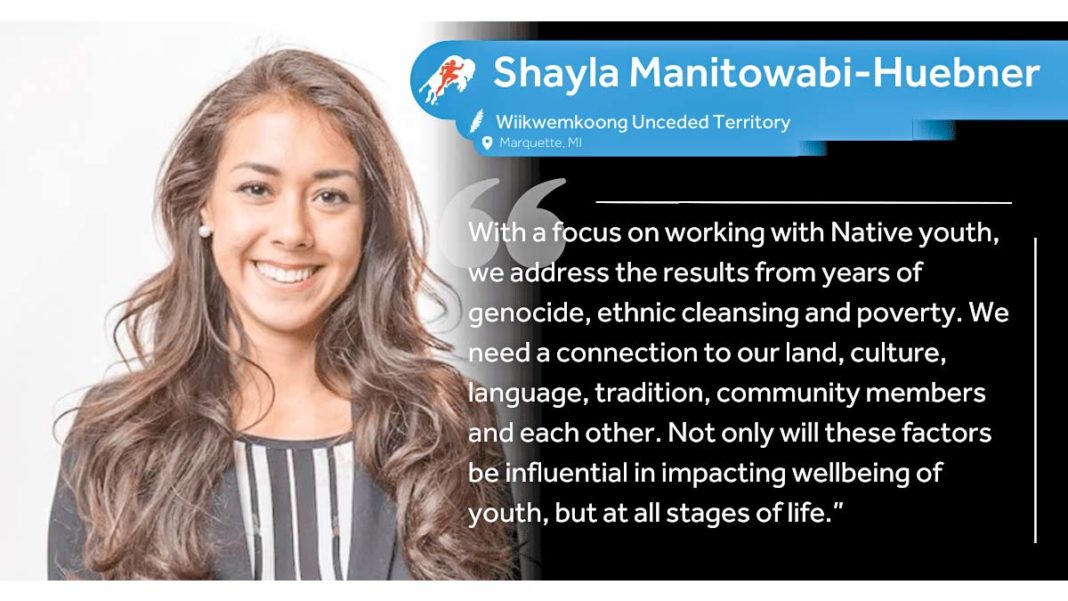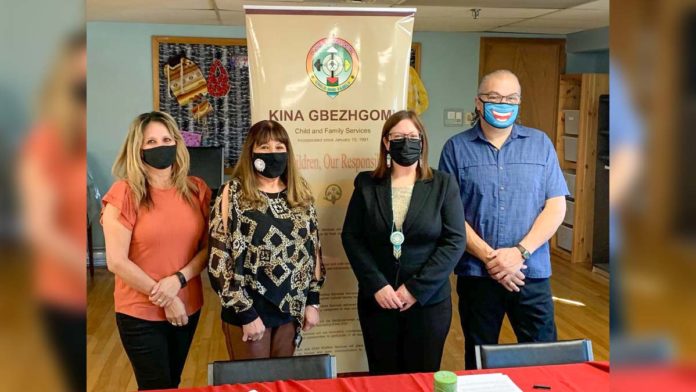UTAH—While she has done some middle distance and cross-country running in the past, Shayla Manitowabi-Huebner will now be running a marathon, the prestigious Boston Marathon, in a couple of weeks as part of the United States Native Women’s Running Team.
“No, I’ve never run a marathon,” Ms. Manitowabi-Huebner (who was born and raised in Michigan, and is a member of the Wiikwemkoong Unceded Territory) told The Expositor last week. “I used to run in middle distance events when I was in school and did cross-country. I also ran in college.”
“When I started distance running, I would train to run a distance of 10-12 kilometres,” Ms. Manitowabi-Huebner told The Expositor.
“Then, on a whim, I applied to the Native Womens Running team, and I was selected for the team to run in the Boston Marathon,” said Ms. Manitowabi-Huebner. “This is going to be a new experience, running in a marathon.”
“For the past 5-8 weeks I’ve been training to run the 26 miles of a marathon,” said Ms. Manitowabi-Huebner, who was born in Michigan and spent most of her life there. She pointed out she has relatives who live in Wiikwemkoong.
Ms. Manitowabi-Huebner, who just recently turned 25, explained, “the Native Women Running Team is a non-profit organization whose founder, Verna Volker, launched her own team of Indigenous runners to increase visibility and for representation, including Indigenous women in running.”
Trail Runners magazine reported that Ms. Volker “built her following as a working-mother-runner who is deeply committed to her Native community. Along with Verna, the team at the Boston Marathon will include Shayla Manitowabi-Huebner of Wiikwemkoong (Odawa), Samantha Noyce (Navajo), Angel Tadytin (Navajo).”
The magazine’s story continues, “one thing is certain, Verna and her team are just getting started. Beyond Boston, they use running as a platform for representation and real tangible change.”
“My goal is to create teams around races and not have to wait to be invited or worry about being tokenized when we are invited. White supremacy is still very much a problem, so we have to take the lead,” Ms. Volker told the magazine.
“Last May I graduated university with my masters degree in exercise science,” Ms. Manitowabi-Huebner told The Expositor. “I received a $10,000 grant through the Running Strong for American Indian Dreamstarter program, which I am now working on. With a focus on working with Native youth, we address the results from years of genocide, ethnic cleansing and poverty. We need a connection to our land, culture, language, tradition, community members and each other. Not only will these factors be influential in impacting the wellbeing of youth, but all stages of life.”
Ms. Manitowabi-Huebner’s dream is “Running into Culture,” a culturally-tailored Native youth running program that incorporates a holistic and community approach to promote healthy behaviour. She will be hosting workshops and running sessions open to all levels of ability including teachings on the history of running, culture, traditional food, physical exercise, nutrition, mental and spiritual health and basic language. Each runner will be provided with running shoes, t-shirts, socks and traditional foods as post-session snacks and the end of the program will include a five-kilometre run/walk.
“Running into Culture” will provide an opportunity for youth to experience personal and cultural growth,” said Ms. Manitowabi-Huebner. Her goal is to reduce Native youth obesity, pre-diabetes, and suicide rates as well as increase mental well being, self-identity and cultural connection. During her graduate studies, she developed culturally sensitive obesity interventions for Native youth in the US midwest with traditional dancing YouTube videos called, ‘Powwow Sweat.’
“I wanted to tie my passions for exercise, health and helping others into my education,” Ms. Manitowabi-Huebner told Running Strong. “Then, I thought of applying what I wrote in my research to a running aspect. “As my cultural journey and relationship with running continues to grow, I’ve learned how essential running is for the Indigenous way of life.” She added, “with a focus on working with Native youth, we address the results from years of genocide, ethnic cleansing and poverty. For our Native youth, we need a connection to land, culture, language, tradition, community members and each other. Not only will these factors be influential in impacting wellbeing of youth, but at all stages of life.”




